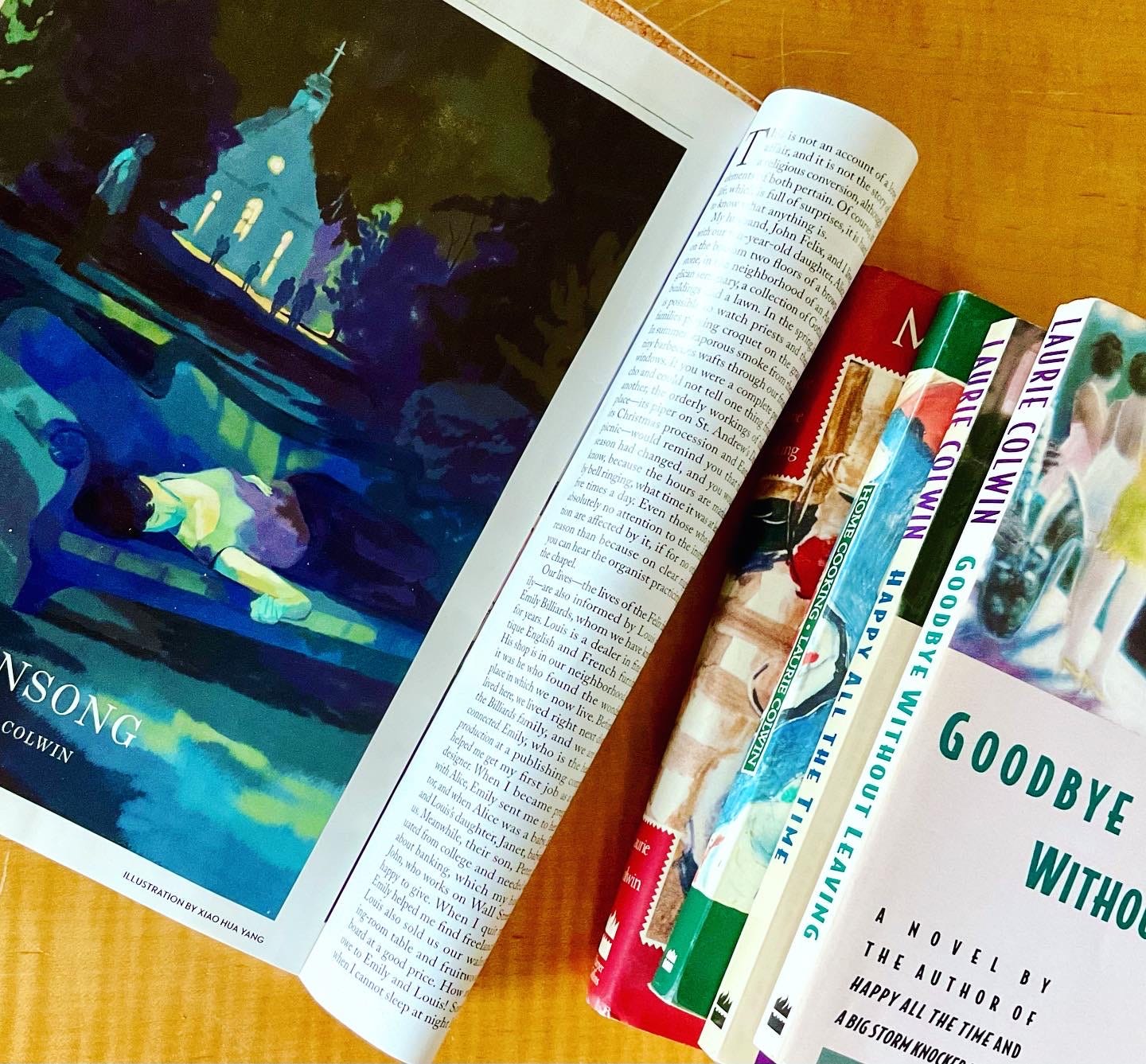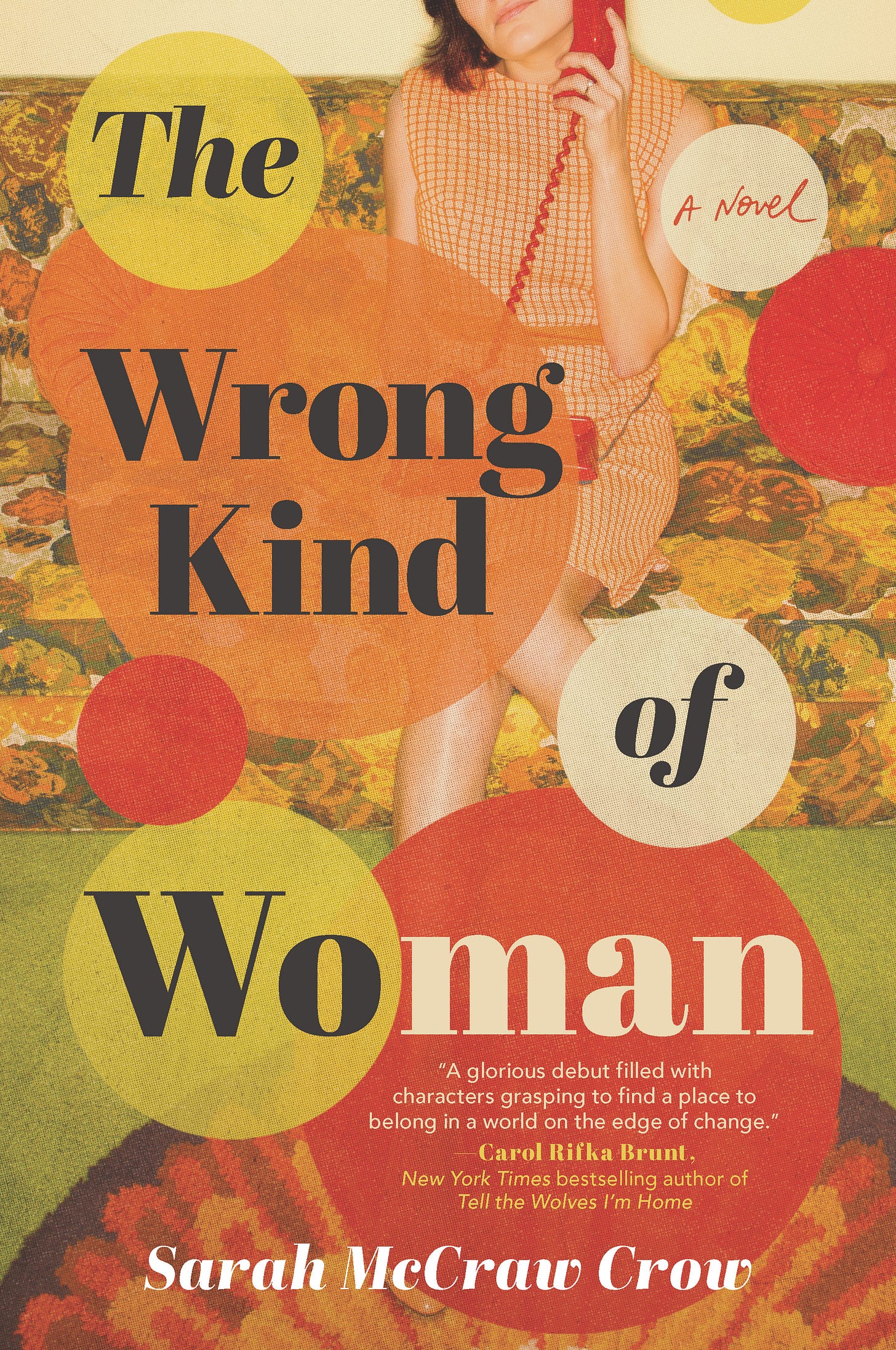Some thoughts on Laurie Colwin
Plus book recs and my favorite writer resource this month.
I've been thinking about the late writer Laurie Colwin this month. That's partly because The New Yorker ran a new Colwin story (new in the sense that it had never been published, found recently among her papers). The story, “Evensong,” feels like a fitting last Colwin story; it’s wry yet also elegiac, set in her own neighborhood of Chelsea, in New York City. “This is not an account of a love affair,” the story begins, “and it is not the story of a religious conversion, although elements of both pertain. Of course, in life, which is full of surprises, it is hard to know what anything is.” If you’re already a Colwin fan, you’ll love this story; if you’re not familiar with her work, this story is a good place to start.
Colwin died at 48 in 1992, far too soon. But her novels and stories are still in print—my favorite is her first novel, Family Happiness, about a woman named Polly Solo-Miller, who’s done everything right in her life, and suddenly finds herself in a longterm affair. Colwin’s novels feature a lot of charm and humor, as well as main characters, mostly New Yorkers, trying to figure out their purpose in life. But it’s hard to say which writers she most resembles—Cathleen Schine? Elinor Lipman? Jane Austen?—because her stories are so much her own quirky things, and because her books are now decades old.
These days, Laurie Colwin is better known for her two collections of food essays, Home Cooking and More Home Cooking, than for her fiction. Here’s a little from my essay-in-progress on Home Cooking:
…… Colwin, born in 1944, was of my mom’s generation, and when she started college, the expectations for young women were clear—dorms guarded by housemothers and ruled by curfews, no boys allowed upstairs. Women were limited in where they could go to college, what they could study, and what kind of jobs they could get. Ten years later, after Colwin had dropped out and then returned to college, a lot of those expectations had gone out the window. Her experience during those late-‘60s SDS protests shows Colwin balanced between two eras: There she was with the Columbia protesters, but she was stuck in a kitchen making sandwiches. Colwin straddled the world of my mom and those accompanying 1950s expectations, of Peg Bracken’s sly female humor that accepted that men ran the world; and the so-called post-feminist late ‘80s and early ‘90s. Reflecting that balance, Colwin’s food essays look back, to British food writers like Jane Grigson and antediluvian cookbooks like Charleston Receipts, as much as they look forward, to her love of Thai chili paste, organic vegetables, and her prescient worries about income inequality…..
If you’re a Colwin fan, or if you pick up one of her books, let me know!
Recent appearances
I was happy to take part in two events last month, to talk about the writing life and about The Wrong Kind of Woman:
Adventures by the Book’s Book Bingo Celebrating Women’s History, a virtual event with five other historical novelists.
Conversations with Concord Authors. Both of these are on YouTube.
Book recs
My reviews of Claire Dederer’s essay collection MONSTERS: A Fan’s Dilemma and Alice Winn’s debut novel IN MEMORIAM ran recently in BookPage. I loved both these books.
What I’ve been listening to and watching
Podcasts:
The Bono episode on Smartless: Since everyone in the world is listening to Smartless, this recommendation may be redundant, but I was charmed by the Bono episode. Loved Bono’s sense of humor, and words about writing and songwriting.
Dear Nina: I love Nina Badzin’s podcast about friendship, and I especially enjoyed this episode with Nina’s mom answering listeners’ friendship questions.
TV:
If you need a palate cleanser after the acid of Succession, try Shrinking, on Apple TV, or Big Door Prize, also on Apple. Shrinking shares some Ted Lasso DNA (Brett Goldstein, AKA Roy Kent on Ted Lasso, writes for Shrinking), and like Ted Lasso, Shrinking is a comedy about a dad in trouble, with Jason Segel playing a psychotherapist, a recent widower who’s screwed up everything. It also stars Harrison Ford and Jessica Williams as his partners. And Big Door Prize stars Chris O’Dowd as a befuddled husband and dad in a small town where everyone else is obsessed/infatuated with a machine that purports to tell you your true purpose.
This month’s writer resource
This conversation between novelists Rebecca Makkai (I HAVE SOME QUESTIONS FOR YOU) and Meg Wolitzer (THE FEMALE PERSUASION) at the Newberry Library: It’s mostly Makkai interviewing Wolitzer, but both talk about their craft, and I loved this from Meg Wolitzer: “Write what obsesses you, what is most you, your way of being in the world…”
Congrats to Barbara H., who won a copy of THE WRONG KIND OF WOMAN, and Sharon B., who won a gift card to Norwich Bookstore in Norwich, VT. Stay tuned for future giveaways!




I've loved Laurie Colwin's Home Cooking since I discovered it in high school, but I just don't care for her fiction. (Though I did read that New Yorker story and enjoyed it!) I've read at least three of her novels, over a wide span of years -- I keep thinking, Well, she's so great on the subject of food, maybe I was just too young/chose an off one/etc. -- but I just like them. The characters never seem real to me -- there's an off tone about them; they are oddly two-dimensional (even fake-seeming). I can't _get_ them. And I love New York fiction, especially in the 70s and 80s. But I highly recommend Home Cooking (and More). I don't know why her voice in nonfiction feels so authentic and funny, while her fiction doesn't quite come together.
I’ve been rereading her short stories on a plane, with pen in hand to note at least a fraction of her distinctively wry observations.